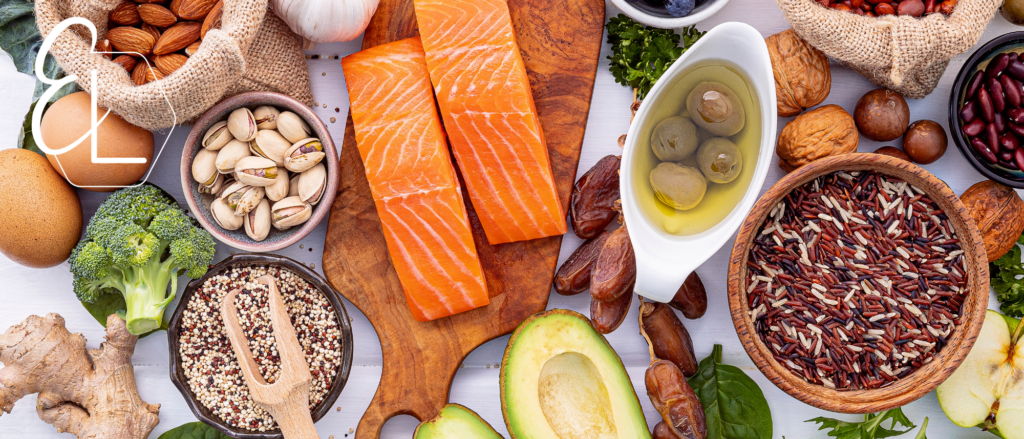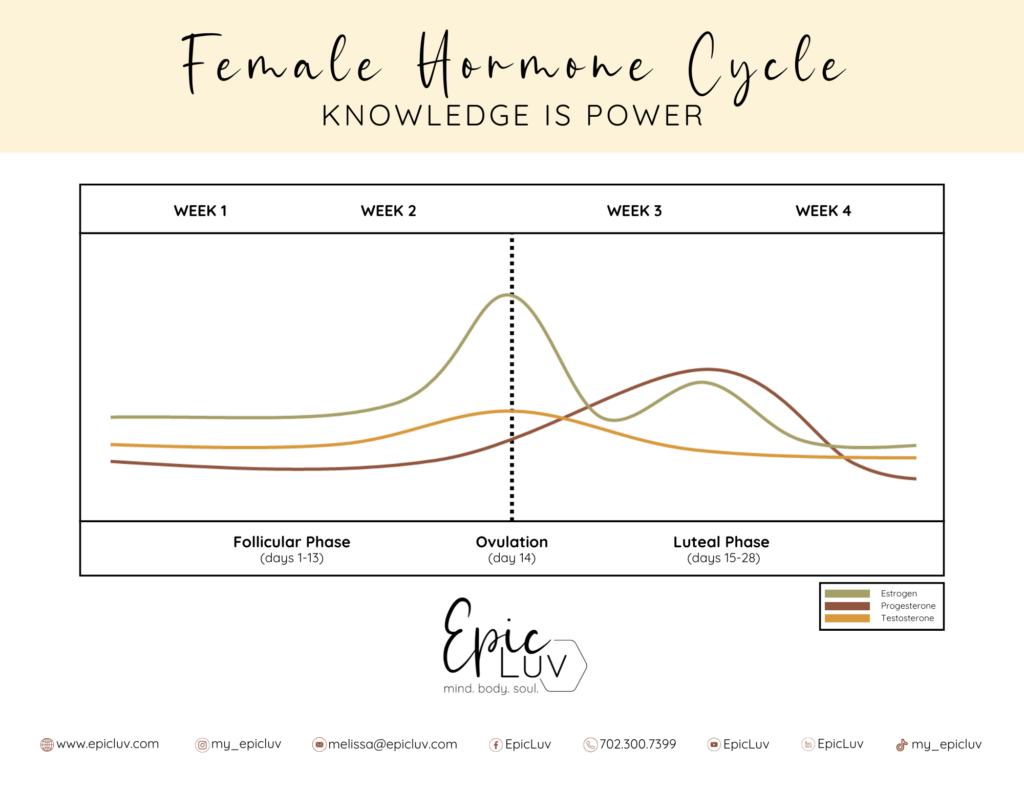
As women approach midlife, they undergo a series of significant hormonal shifts. For many, the transition from perimenopause to menopause can be challenging, not just emotionally and physically, but in how it impacts overall well-being. One of the most important, yet often overlooked, factors influencing this transition is the food we eat. The relationship between hormones, food, and environmental toxins is increasingly understood as a crucial aspect of a woman’s health during this time. Understanding this connection is essential for empowering women to take charge of their health as they move through perimenopause and menopause.
Understanding the Hormonal Changes of Perimenopause and Menopause
Before diving into how food and lifestyle can help balance hormones during this time, let’s briefly explore the hormonal shifts that take place in a woman’s body during perimenopause and menopause.
- Perimenopause: Perimenopause is the transitional phase leading up to menopause, which can begin as early as the mid-30s, but typically starts in the 40s. During this period, the body’s estrogen levels fluctuate, causing a wide range of symptoms, including irregular periods, hot flashes, mood swings, sleep disturbances, and weight gain. While estrogen and progesterone decline, testosterone levels can also decrease, impacting libido and energy levels.
- Menopause: Menopause marks the end of a woman’s menstrual cycle, usually occurring between the ages of 45 and 55. At this stage, the ovaries cease to produce eggs, and estrogen and progesterone levels drop significantly. This results in the cessation of menstruation and a range of other symptoms such as hot flashes, night sweats, and vaginal dryness. It is essential to understand that the abrupt drop in estrogen can also have long-term effects on bones, skin, and heart health.
Throughout this journey, the fluctuations in hormones often lead to various symptoms that impact overall health, including changes in mood, sleep, energy, and weight management. However, there are natural ways to help balance hormones and ease the transition.
The Role of Food in Hormonal Balance

One of the most powerful tools women have to support their health during perimenopause and menopause is food. Proper nutrition not only helps alleviate symptoms but can also play a vital role in balancing hormones and preventing complications that may arise from hormonal imbalances.
- Incorporating Healthy Fats: Fats are essential for hormone production, and as estrogen levels decline, it becomes even more important to prioritize healthy fats. Omega-3 fatty acids, found in foods like fatty fish (salmon, mackerel, sardines), chia seeds, flaxseeds, and walnuts, help reduce inflammation and promote hormone production. Healthy fats from avocados, olive oil, and coconut oil also provide the body with essential fatty acids necessary for cellular function, including hormone synthesis.
Key Tip: Including more healthy fats in your diet supports estrogen production and provides a balanced hormonal foundation, which can reduce symptoms like hot flashes and mood swings. - Balancing Blood Sugar Levels: Blood sugar imbalances can exacerbate hormonal fluctuations and contribute to symptoms like irritability, anxiety, and fatigue. Refined carbohydrates, sugar, and processed foods can spike blood sugar levels, causing an insulin surge, which disrupts hormone balance. Women in perimenopause and menopause are particularly vulnerable to blood sugar imbalances due to the body’s changing sensitivity to insulin.
What to Eat: Focus on foods with a low glycemic index, like whole grain, vegetables, fruits, and legumes. Incorporating protein-rich foods like eggs, lean meats, tofu, and lentils helps stabilize blood sugar levels and maintain energy levels throughout the day. - Phytoestrogens and Hormonal Support: During menopause, the decline in estrogen levels can be mitigated with the inclusion of phytoestrogens—natural plant compounds that mimic the activity of estrogen in the body. Foods like soy (tofu, tempeh, edamame), flaxseeds, sesame seeds, and lentils are excellent sources of phytoestrogens, which may help alleviate hot flashes and other menopausal symptoms.
Key Tip: Including more phytoestrogen-rich foods in your diet can be a natural way to support the body’s transition through menopause, helping to balance estrogen levels and reduce the severity of symptoms like hot flashes. - Cruciferous Vegetables and Detoxification: During perimenopause and menopause, the body’s ability to metabolize and eliminate excess estrogen becomes more important. This is where cruciferous vegetables (like broccoli, cauliflower, kale, and Brussels sprouts) come into play. These vegetables contain compounds that support the liver in detoxifying excess estrogen, thus promoting balanced hormone levels.
Why It Works: Cruciferous vegetables contain indole-3-carbinol, which supports healthy estrogen metabolism. By aiding the liver’s detoxification processes, these vegetables help balance hormone levels and reduce the risk of estrogen dominance. - Environmental Toxins and Hormonal Health: In addition to food, environmental toxins play a significant role in disrupting hormonal health. Endocrine-disrupting chemicals (EDCs), which are found in everyday products like plastics, cosmetics, and household cleaners, can interfere with the body’s natural hormone regulation. These toxins, often referred to as xenoestrogens, can mimic or block estrogen, contributing to hormonal imbalances.
What to Do: Reducing exposure to environmental toxins is crucial during this time. Opt for organic produce when possible, limit the use of plastic containers and bottles, and choose non-toxic cleaning and personal care products. Additionally, drinking plenty of water and incorporating antioxidant-rich foods (such as berries, leafy greens, and nuts) can help the body eliminate toxins more effectively.
Tips for Managing Hormonal Symptoms Naturally

In addition to food and environmental awareness, there are a variety of lifestyle practices that can support hormonal balance and ease symptoms during perimenopause and menopause:
- Exercise Regularly: Physical activity is one of the most effective ways to manage symptoms. Strength training can improve bone health and muscle tone, while aerobic exercise helps regulate weight and balance hormones. Even moderate activity like walking or yoga can reduce stress, alleviate mood swings, and improve sleep.
- Prioritize Sleep: Hormonal fluctuations can interfere with sleep, making it important to create a restful sleep environment. Establish a calming bedtime routine, avoid caffeine or heavy meals before bed, and ensure your room is cool and dark.
- Stress Reduction: Chronic stress can amplify symptoms of perimenopause and menopause. Mindfulness meditation, deep breathing exercises, and journaling can help manage stress levels. Regularly engaging in these activities can also promote better sleep and reduce the negative impact of stress on hormonal balance.

Insights from Dr. Mary Claire Haver
Dr. Mary Claire Haver, a renowned expert on women’s health, especially in relation to perimenopause and menopause, emphasizes the importance of nutrition and lifestyle changes in managing this transition. In her approach, she integrates balanced, anti-inflammatory foods with a focus on weight management and hormonal health. Her work and research provide valuable insights for women seeking to understand the role that food and self-care play in hormone regulation. To learn more about Dr. Haver’s work, check out her website for additional resources and guidance on navigating perimenopause and menopause.
Watch: Food and Hormones in Perimenopause and Menopause
For additional tips and insights, check out this informative video on hormones and food:
Join Our Free Masterclass: Women, Hormones, and Food

If you’re ready to take control of your hormones and discover the best foods to support your health during perimenopause and menopause, I invite you to join our Free Women, Hormones, and Food Masterclass on March 12th at 5:30 p.m. PST. This masterclass will dive deeper into the topics of nutrition, hormones, and environmental toxins and how they relate to your overall health during this phase of life.
Don’t miss out on this opportunity to gain practical insights, expert advice, and actionable tips for navigating perimenopause and menopause with confidence.
Conclusion:
The transition through perimenopause and menopause doesn’t have to be overwhelming. By focusing on nutrition, reducing environmental toxins, and practicing self-care, women can navigate this period of life with greater ease and empowerment. Hormones and food are deeply interconnected, and with the right knowledge and strategies, you can support your hormonal health and overall well-being during this transformative phase.

Leave a Reply